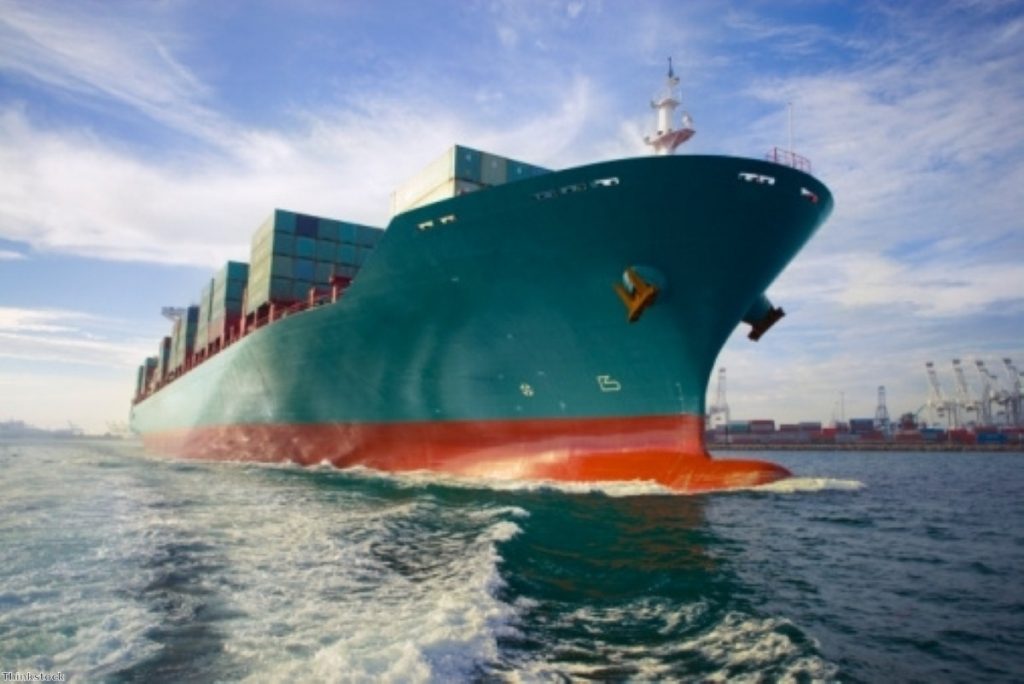Sketch: Swivelling Clarke practices his turning
Ken Clarke's ability to "swivel", on policy and in person, is now beyond doubt. Did that really justify his comparison to a cruise ship?
By Alex Stevenson Follow @alex__stevenson
This article was first published on June 21st 2011
The surprise purveyor of this little titbit was none other than Speaker John Bercow, who was becoming frustrated with the justice secretary's reluctance at the despatch box to address the Commons as a whole.


"Can I very gently and in a jocular fashion say to the secretary of state that he shouldn't be like a cruise ship in rotation," he said politely.
"The House wishes to hear him. He swivels throughout. It would be helpful if he could face the House."
Clarke is far from being a svelte cruise liner. He is more like an icebreaker, ploughing through the parliamentary obstacles in front of him with the sheer weight of his momentum.
The challenge, in these circumstances, is to get him to slow down. As any skipper will tell you, this is hard enough. Getting them to do a U-turn is even harder.
"The problem might be in my career I haven't swivelled enough on occasions," Clarke replied, smiling. He is getting in lots of practice now.
Most politicians, forced to drop a policy after being hauled in by No 10, might adopt a defeated, diminished demeanour. Andrew Lansley certainly did last week over his NHS reforms, so mauled as to become unrecognisable. Not Kenneth Clarke. "I've been on probation for about the last few decades," he mused. "Sooner or later I'll get the hang of it. Most of my colleagues envy my ability to get into the headlines."
It doesn't matter whether you're a Labour MP seething against the coalition's cuts, or a Liberal Democrat fed up with not getting their way – all those present roared with laughter at Clarke's disarming self-deprecation. He is really very good at shrugging his shoulders.
"Politics now today has become a branch of the celebrity culture," he complained, suggesting – God forbid – that it was all about gossip and little else. It is hard to imagine Clarke looking glamorous on the red carpet, so perhaps he is right after all.
The only time Clarke looked even remotely troubled this afternoon was when dealing with his shadow, Sadiq Khan. Not that he appeared threatened. Khan's experience of Cabinet-level politics is dwarfed by Clarke's, by decades. Instead Clarke, sitting forward on the green bench, one knee bent and the other stuck out, arms folded, looked at Khan with the distressed resignation of a beached whale.
Khan very professionally and neatly dissected the government's performance on a range of issues. Clarke, knowing the significance of the opposition, barely registered a response. On legal aid, for example, he simply observed: "I didn't think he has anything to say that really changes the case I put forward just a moment ago." How are you supposed to debate against that?
A greater challenge was the motley collection of Tory right-wingers who have spent much of their professional lives fighting the influence of the thoroughly liberal Clarke. Today marks one of their greatest victories against his plans, but it didn't stop them carrying on moaning.
Red-faced Edward Leigh was outraged by Clarke's admittedly ridiculous proposal that "drug-free wings" be introduced to prison cells. "What on earth did he mean?" he demanded. Red-socked David Ruffley applauded the plan to get private companies into prison. It was "radical", he noted, before adding, with as much emphasis as humanly possible "and – right – wing".
There is nothing red about Philip Davies, who rubbed his hands with glee like a Disney villain as he began by congratulating Clarke for "rowing back on some of the more damaging proposals". He added: "There's clearly much in this but by no means all that we can support."
This is obviously high praise, in relative terms at least. Clarke replied breezily: "Well, I'm grateful for the kind remarks with which he began." On days like today, he'll take whatever compliments he can get.
Despite their inbred hostility to this lily-livered liberal in their midst, the Tory backbenchers can't help but maintain an innate fondness for this man. Almost the entire government backbench attempted to stand up as they thought Clarke was wrapping up the answer to one question. He hadn't finished – he was just pausing briefly, as they realised when he resumed once more. Looks and grins passed to and fro among them. They were not frustrated, but affectionate.
Is it that Clarke was kow-towing to their right wing impulses on law and order which made them so tolerant? Or just that he's a special kind of politician? Perhaps – whisper it quietly – just perhaps, it's both.









